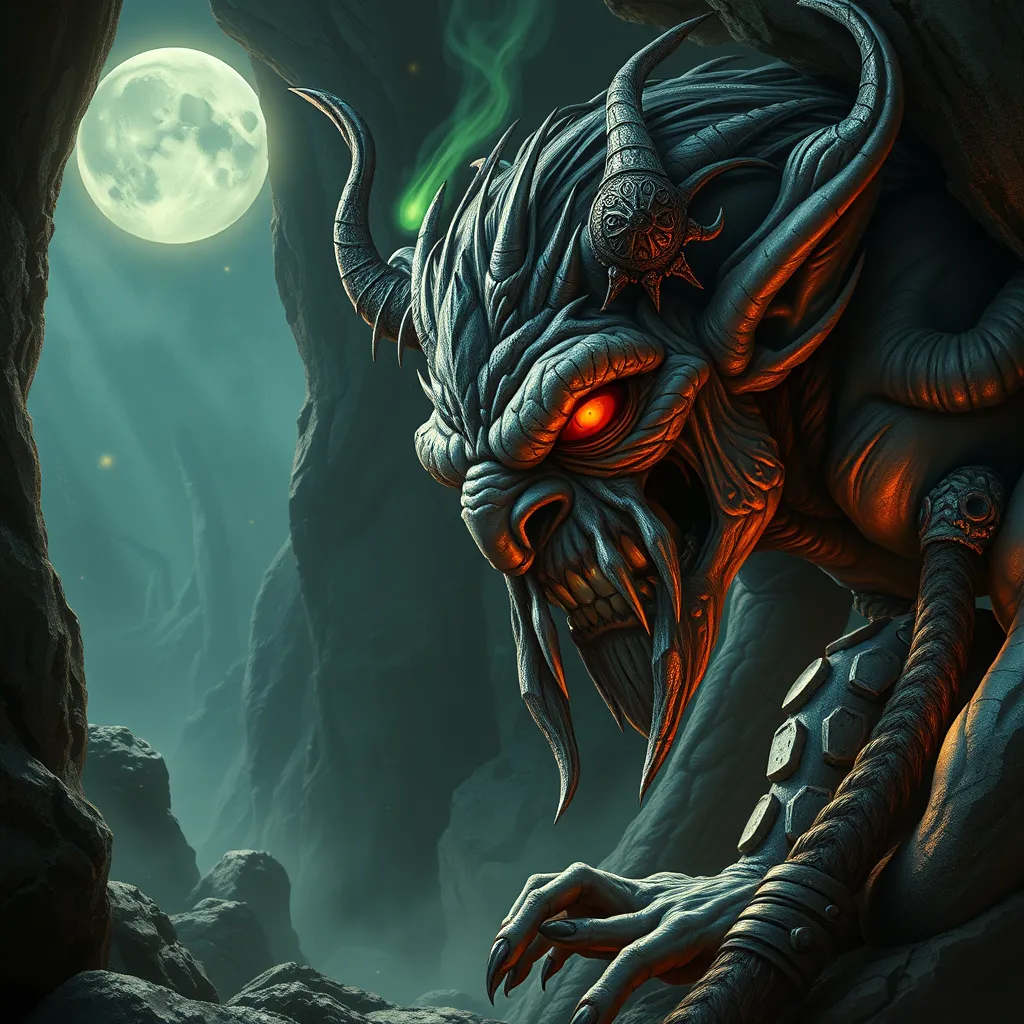The Troll’s Curse and the Gift of Prophecy
I. Introduction
Throughout folklore, curses and prophecies are recurring themes that shape the destinies of characters and the narratives themselves. These elements invite exploration into the human condition, fate, and the consequences of actions. In this article, we delve into the tale of a troll cursed to wander the earth and a gifted prophet whose insights could change his fate. The interplay between the troll’s curse and the gift of prophecy serves as a rich tapestry of understanding that we aim to unravel.
II. The Legend of the Troll’s Curse
The origin of the troll’s curse is steeped in historical and cultural contexts, often reflecting societal fears and misunderstandings of the unknown. Traditionally, trolls are depicted as misunderstood creatures, sometimes malevolent, but often merely a product of their environment.
The troll in our story, known as Grendel, was once a guardian of the forest. His motivations were noble: he sought to protect the land from those who would exploit it. However, his fierce demeanor and solitary nature led to fear among the nearby villagers. In their desperation, they turned to a sorceress who cursed him. This curse transformed him into a creature of despair, banished from the community he sought to protect.
The impact of the curse on Grendel’s life was profound. He became a figure of loneliness, shunned by society and forced to confront the darkness within himself. The once-vibrant forest he guarded began to wither under his curse, as his sorrow spread like a miasma through the land.
III. The Nature of Prophecy
Prophecy, in various cultures, is often considered a divine insight into the future. It serves as a warning, guidance, or an invitation to change one’s path. Prophecies can manifest in several forms, including:
- Dreams: Visions experienced during sleep that provide insight or warnings.
- Visions: Sudden, vivid insights that can occur at any moment, often accompanied by a feeling of urgency.
- Oracles: Individuals or mediums through whom prophecies are channeled, often revered and consulted by the community.
The role of the prophet in society is multifaceted. They are seen as intermediaries between the divine and the mundane, often carrying the weight of their foresight while navigating the complexities of human relationships.
IV. The Intersection of the Curse and Prophecy
The curse that binds Grendel alters his fate and perception of reality. Isolated from society, he becomes increasingly aware of the prophecies surrounding him—whispers of his potential redemption and the possibility of breaking the curse. This duality is crucial; the curse becomes both a source of suffering and a pathway to insight.
During a fateful encounter, Grendel meets a seer named Elara, a woman gifted with the ability to see through the veil of time. She recognizes the troll’s pain and offers him a glimpse of his potential future, where he is not just a creature of darkness but a symbol of transformation and hope for others.
This encounter sparks a profound internal conflict for Grendel, forcing him to confront the duality of his existence as both a cursed being and a potential harbinger of change.
V. The Journey of Redemption
Grendel’s quest to understand the gift of prophecy leads him through a series of trials, each designed to test his resolve and reshape his understanding of himself and his curse. Key events in this journey include:
- Confrontation with the Villagers: Grendel faces his fears and the villagers who once feared him, only to discover their own struggles with misunderstanding.
- Encounter with Nature: Through communion with the forest, he learns to harness the power of his emotions, transforming his despair into strength.
- Guidance from Elara: The seer continues to guide him, teaching him that prophecy is not just about foreseeing the future but also about understanding the present.
Throughout this journey, Grendel learns that redemption is not merely about breaking the curse; it is about embracing his true self and the potential for growth that lies within both him and others.
VI. Symbolism and Themes
Grendel is a potent symbol of misunderstood beings—creatures who are often judged by their appearances or past actions rather than their potential for goodness. His curse reflects the broader theme of how society often punishes those who do not conform to its norms.
Prophecy serves as both a blessing and a burden. While it offers insight and potential for change, it also imposes a heavy responsibility on the bearer. This tension invites reflection on deeper themes of:
- Fate vs. Free Will: The struggle between accepting one’s fate and the desire to forge a new path.
- Personal Growth: The transformative power of adversity and the journey towards self-acceptance.
VII. Cultural Interpretations and Adaptations
Cultural interpretations of trolls and prophecies vary widely. In Scandinavian folklore, trolls are often depicted as malevolent creatures, whereas in some modern adaptations, they are portrayed with greater complexity and depth.
Notable literary and cinematic adaptations of similar tales emphasize the human condition and the eternal struggle between light and dark. Stories like J.R.R. Tolkien’s “The Hobbit” and various adaptations of “Beauty and the Beast” explore these themes through the lens of misunderstood characters.
In contemporary discussions about destiny and choice, the tale of the troll and the prophet resonates with audiences who grapple with questions about their paths and the nature of their struggles.
VIII. Conclusion
In conclusion, the relationship between the troll’s curse and the gift of prophecy serves as a powerful narrative device that explores themes of redemption, understanding, and personal growth. The enduring appeal of such stories lies in their ability to reflect our own struggles and triumphs, inviting us to consider how we navigate our curses and gifts in life.
As we reflect on Grendel’s tale, we find lessons on the importance of empathy and understanding toward those who are different from us, as well as the potential for transformation that lies within each of us. The interplay of curses and prophecies not only enriches folklore but also offers timeless wisdom for the human experience.



